The Munich Olympics incident was an attack carried out by members of the Palestinian group Black September, who infiltrated the Olympic Village, killing and taking members of the Israeli Olympic team hostage during the 1972 Summer Olympics held in Munich. This was the first time the Olympics had returned to Germany since the 1936 Berlin Games, which had been used by Adolf Hitler as a platform to promote Nazi ideology, eventually leading to World War II and marked by blatant racism. The Germans were therefore under pressure to present a better image to the world. However, due to the chaotic handling of the situation, the incident resulted in the deaths of 11 Israeli team members, a German police officer, and five of the hijackers, with three others captured. The West German government faced global criticism for poor planning and execution during the rescue attempt and its overall handling of the crisis.
As the 1972 Games were being organized, organizers were haunted by the shadow of the previous Olympics held in Mexico City in 1968, where just ten days before the event, hundreds of students were killed by government forces in the Tlatelolco Square. This tragedy cast a shadow over the Games, prompting German authorities to ensure such an incident did not occur on their soil. They reduced security expenditures to avoid disrupting the Games’ success, resulting in unarmed and inconspicuous security personnel. The Olympics began on August 26, 1972, with thousands of athletes from over 120 countries celebrating the opening ceremony.

For over a week, the Games proceeded without incident until the Munich Olympics attack began at 4:30 a.m. on September 5. Eight armed Palestinian militants from the Black September organization, a radical faction of the Palestinian group Fatah, scaled the Olympic Village fence disguised as athletes and used stolen keys to gain access to the Israeli team’s quarters. When they attempted to enter Room 1, they encountered wrestling referee Yosef Gutfreund and wrestling coach Moshe Weinberg. Weinberg was shot while fighting them and was forced at gunpoint to lead them to the remaining Israeli coaches and athletes’ rooms. It was suggested that Weinberg guide them to other rooms used by the Israeli team, excluding areas where wrestlers and weightlifters were staying in Apartment 3, as they would be more likely to fight back. Shaul Ladany, a member of the delegation who escaped from Apartment 2, speculated that his room was also bypassed because he was staying with members of the Israeli shooting team. The attackers took all the men in Apartment 1 and likely did not want to engage in close-quarters combat with world-class shooters at the early stages of their operation.
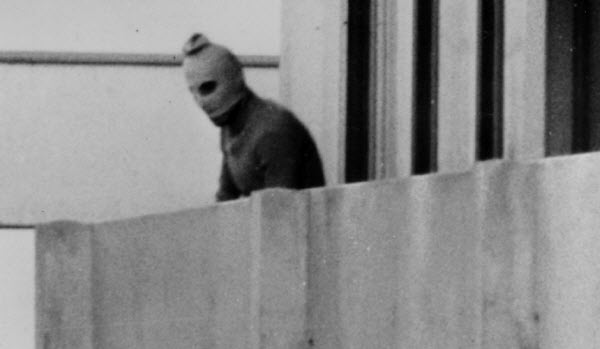
After clearing Apartment 1, the attackers proceeded to Apartment 3, gathered more hostages, and forced them back to Apartment 1. During this time, wrestler Gad Tsabari managed to escape and ran down the stairs towards a parking garage. Weinberg used the confusion to attempt to fight the attackers again, nearly gaining control of one of their guns before being shot and killed. Weightlifter Yosef Romano also attempted to resist and disarm one of the terrorists but was killed as well, his body left in Apartment 1 as a warning to others against further resistance. The attackers’ demands included the release of over 200 Palestinians held in Israeli prisons, the release of German radicals Andreas Baader and Ulrike Meinhof from German jails, and a plane to transport them to a safe destination in the Middle East. During negotiations, the planned rescue attempt was canceled when it was realized that the actions of the West German police were being broadcast live to nearly a billion viewers worldwide and to many televisions throughout the Olympic Village. At around 10:00 p.m., believing they had reached an agreement, the attackers led their bound and blindfolded hostages to buses that transported them to waiting helicopters.
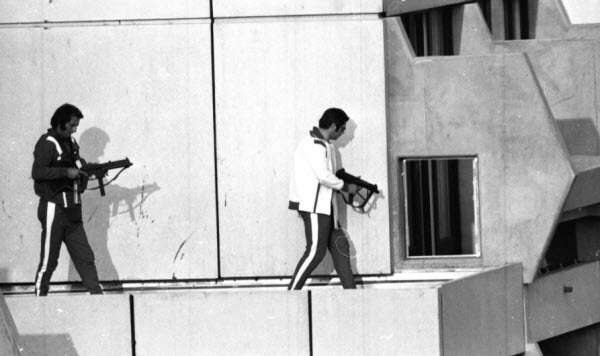
The situation escalated when the helicopters transported them to the Fuerstenfeldbruck Air Base, 25 km west of the Olympic Village, where German police had set up an ambush. Although the German army had better training and equipment for such missions, the post-war West German constitution prevented the armed forces from assisting the civil police, which was disastrous. The police snipers involved in the operation had not received formal sniper training and were inadequately positioned and numbered. They lacked radios to communicate with each other or with their leaders, were armed with assault rifles instead of sniper rifles, and had no long-range scopes or night vision capabilities. On the airbase runway, a Boeing 727 filled with 17 police officers disguised as Lufthansa flight crew was intended to subdue the attackers once they boarded the plane. However, the police unanimously chose to abandon this plan in favor of sending armored vehicles, which failed after becoming stuck in traffic. The numerous planning and execution failures led to a nearly catastrophic outcome.
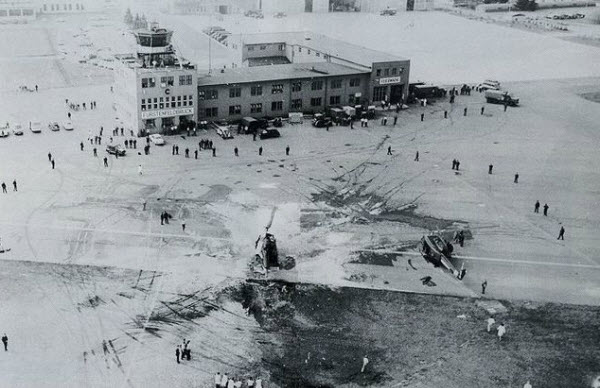
When the helicopters arrived at the base around 10:30 p.m., two of the hijackers checked the plane and, finding it empty, realized the deception and alerted their comrades. At this point, West German police opened fire, resulting in a gunfight that killed five hijackers and a police officer. The helicopter crews searched for a hiding place while the Israeli athletes remained bound inside and unable to escape. The scene quieted briefly into a standoff, interrupted by sporadic gunfire, with crowds gathering around the airport for updates. American sports broadcaster Jim McKay, covering the Olympics for ABC, provided initial updates to viewers. At midnight, a German official announced that all hostages had been freed and all hijackers killed, a premature statement. Tragically, shortly after midnight, one hijacker threw a grenade at one of the helicopters, killing all but one Israeli hostage on board, who succumbed to smoke inhalation before rescuers could reach him. Another hijacker fired inside the other helicopter from close range, killing the remaining five Israeli hostages.
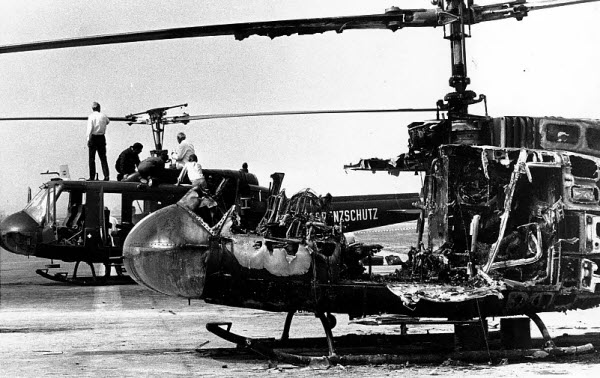
The Munich Olympics ended dramatically with the deaths of all hostages. Armored vehicles finally arrived at the runway, but it was too late, and their crews were unaware of the police presence in the field with no means of communication. During this time, one hijacker ran towards a hiding spot where a helicopter pilot and a police sniper were located but was shot by the sniper. However, movement on the dark runway led to one of the armored vehicles firing accidentally, injuring both the pilot and the sniper with friendly fire. By 12:30 a.m. on September 6, the gunfire ceased, and the Munich Olympics crisis, which lasted about 20 hours, concluded with the deaths of 11 Israelis, a Munich police officer, five hijackers killed, and three captured. At 3:00 a.m., McKay, who had been broadcasting from the Olympic Village for 14 consecutive hours, reported the tragic outcome of the failed rescue operation with the words, “They’re all gone.” For the first time in history, the Olympics were suspended for 24 hours to honor the slain athletes, and a memorial service was held the same day. IOC President Avery Brundage announced that the Games would continue.
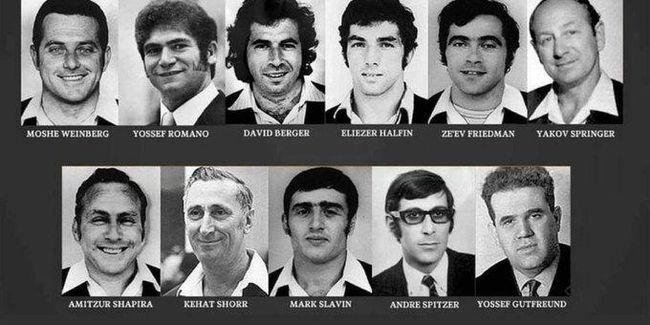
Following the Munich Olympics, the federal German government, Bavarian government, and Munich police conducted an investigation into the incident. It was concluded that the attack was unavoidable and cleared the police officials of responsibility despite clear evidence of severe security failures. It was revealed that in the months leading up to the Olympics, the Munich organizing committee had asked forensic psychologist George Sieber to develop various worst-case security scenarios for the Games. Among the 26 scenarios proposed by Sieber was an attack by the Irish Republican Army, the Red Army Faction, ETA, and other terrorist groups, including a scenario where dozens of armed Palestinians might scale the Olympic Village fence, take Israeli hostages, and demand the release of prisoners from Israeli jails and a plane to the Middle East. However, the organizing committee decided that preparing for such threats would create a security environment inconsistent with their vision for the Games, so these scenarios were ignored. Hours after the Munich incident, Sieber was dismissed from his advisory role to conceal evidence of their mistakes.
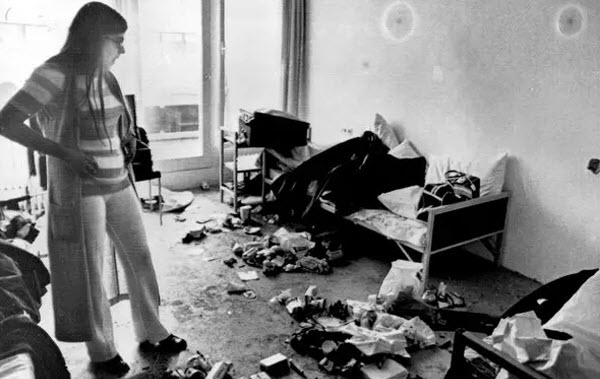
On October 29, less than two months after the Munich incident, two Black September operatives hijacked a Lufthansa Boeing 727 flying from Damascus to Frankfurt, threatening to blow up the plane with its crew and passengers if their demands for the release of the three surviving Munich hijackers were not met. The hijacked plane landed in Zagreb (now Croatia), where the German government complied with their demands, transferring the three captured militants from their Munich prison to Zagreb in a private plane. The militants were then flown on the Boeing to Tripoli, Libya, where the passengers and crew were released, and the hijackers were welcomed as “Munich operation heroes.” It was notable that Israel was never consulted regarding the exchange, and the speed with which the German authorities responded to the demands raised suspicions of possible collusion. An investigation conducted by the Oscar-winning documentary filmmakers of “One September in September” (1999) found that the hijacked plane had been pre-selected by West German officials and Fatah and was nearly empty when it left Damascus, with fewer than ten passengers boarding during a scheduled stop in Beirut. This indicated a secret deal between the parties, with the release of prisoners in exchange for West Germany’s promise not to conduct any operations on its territory.
In response to the Munich attacks, Israeli Prime Minister Golda Meir authorized Operation Wrath of God, an intelligence campaign aimed at assassinating Black September activists and leaders. After a series of operations, the campaign was suspended in July 1973 when an assassination squad mistakenly killed an innocent man in Norway. In 1977, Abu Daoud, the mastermind behind the Munich attacks, was arrested in France. West Germany requested his extradition, but the request was denied on technical grounds, and he was released and transferred to Algeria. Following the Munich attacks, Germany established a specialized anti-terrorism unit known as GSG 9, with Ulrich Wegener
as its first commander. GSG 9 gained international recognition for successfully rescuing 91 hostages from a hijacked Lufthansa flight in 1977, demonstrating the significant improvements in Germany’s counter-terrorism capabilities since the Munich incident.
